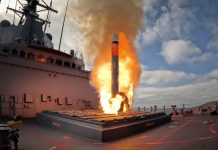Three global superpowers – Russia, China and the US, are now battling to conquer the final frontier – Space. Space has become the ultimate battlefield and the only place left to militarise after land, air and the sea.
China Accepts Seizing Border Regions In Ladakh, But Accuses Indian Troops Of Violation
Last week, Russia and the US held talks in Vienna to discuss issues concerning space security for the first time in seven years. “I remember not a single instance over the past 10 years when the Russian-US consultations had been so lengthy, and with such an intensive and substantive agenda,” said Mikhail Ulyanov, Russia’s permanent representative to the United Nations in Vienna. “It is not just talking, but such specific matters,” he added.
However, according to reports, the meeting didn’t end on a good note. The US and Russia couldn’t agree on how much both sides can militarize space and protect satellites and other orbital assets.
Russia raised opposition to the deployment of space-based antimissile defence systems. The US, resisting such limits, instead wants both parties to work out some sort of code of conduct in orbit.
“Space has been a part of military conflicts since the late 1990s. But the difference is, in the future, a great power conflict may involve more direct attacks on satellites,” said Brian Weeden, an expert once involved in policy planning for the American military’s space operations.
Meanwhile, the US and UK have accused Russia of testing weapon-like projectile in space that could be used to target satellites in orbit. The US State Department described the recent use of “what would appear to be actual in-orbit anti-satellite weaponry” as concerning. Christopher Ford, the US Assistant Secretary of State for International Security and Non-proliferation, accused Russia of hypocrisy after it said that it wanted arms control to be extended to space.
“Moscow aims to restrict the capabilities of the United States while clearly having no intention of halting its own counter-space programme,” he said.
China also destroyed its own satellite using a missile in 2007. India also shot down a satellite as part of an experiment last year making it the fourth country to carry out such a test successfully after the U.S., Russia and China.
Amid fear over weaponisation of space, such experiments are conducted to counter the adversary and shoot down hostile satellites in case of a war. Such acts are bound to receive criticism for the fear of orbital debris from the operation risk damaging satellites launched by other countries. There is no treaty to arbitrate such disputes.
There are only five international treaties and agreements that govern activities in space and only the member states are legally bound by such treaties.
One of such treaties is the Outer Space Treaty signed by 103 members including the US, Russia and the United Kingdom. Parties to the treaty agree to keep space a peaceful, non-militaristic zone. They also agree not to send nuclear weapons into orbit around the Earth or on celestial bodies.
And the treaty expressly prohibits the use of the moon and other celestial bodies for the “establishment of military bases, installations and fortifications, the testing of any type of weapons and the conduct of military manoeuvres.”
China who is currently trailing behind Russia and the US is set to become a space power by 2030. China has been expanding its network of military intelligence satellites. Last year, China conducted 32 successful rocket launches as per the Center for Strategic and International Studies, a Washington-based think tank. This puts China on top for the second year in a row, exceeding the 21 launches in the US in 2019.
Pentagon has raised the possibility of space-based sensors that can detect and track missile launches from nearly every location on the planet, as well as a missile interception system from space. Experts believe that it will be difficult to forge international norms as long as Washington engages in military expansionism in space. China trails the Americans and Russians in the space arena, so Beijing is likely to follow if the U.S. continues on its current path.




